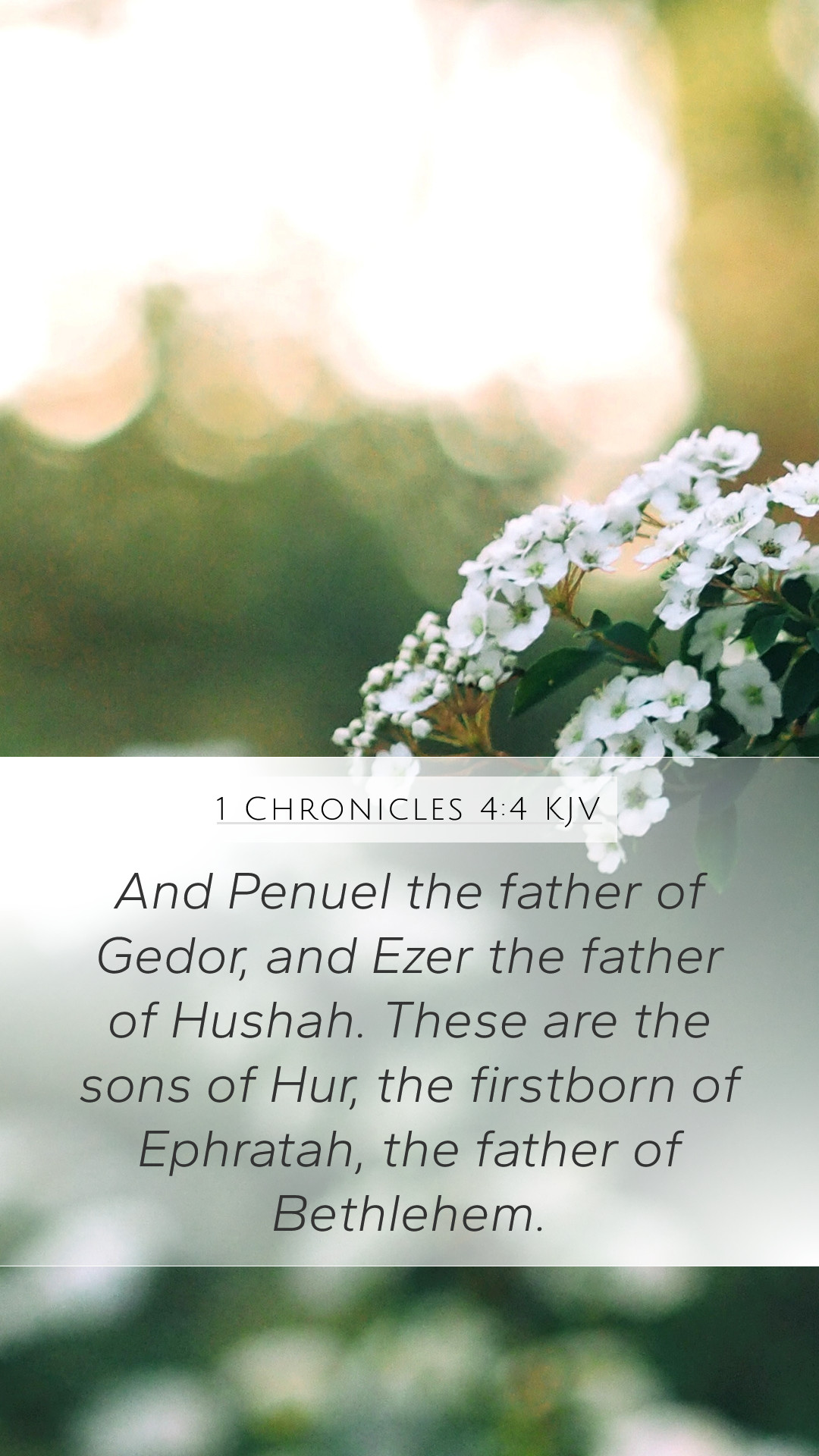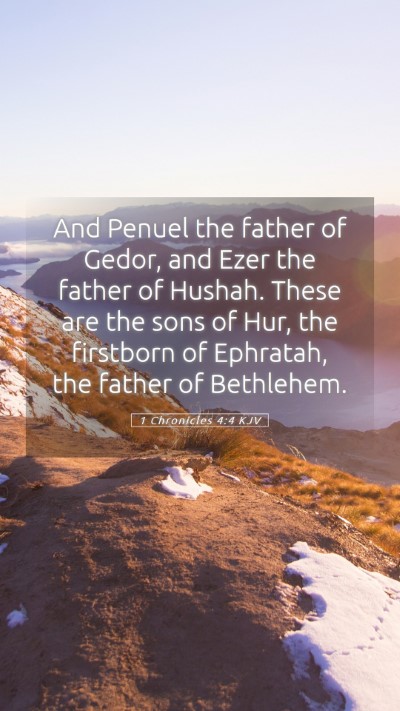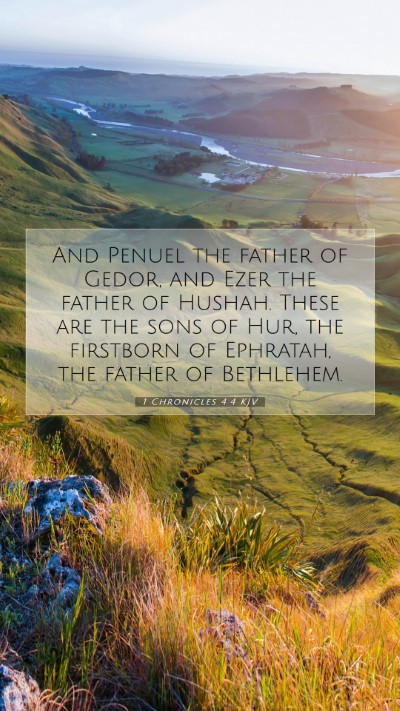Understanding 1 Chronicles 4:4
Verse: 1 Chronicles 4:4 reads: "And Penuel was the father of Gedor, and Ezer the father of Hushah; these are the sons of Hur, the firstborn of Ephrathah, the father of Bethlehem." This verse, while appearing to simply provide genealogical information, carries deeper meanings regarding lineage, identity, and the overarching narrative of God's promises through His people.
Bible Verse Meanings and Interpretations
This verse is part of a larger genealogical context within the book of 1 Chronicles, which serves to connect the faithful with their heritage and to the divine plan. Here are some insights based on public domain commentaries:
-
Matthew Henry's Commentary:
Henry points out that genealogies are significant in the Chronicles, demonstrating God's faithfulness to His covenant through the generations. Each name listed is not just a person but a testament to God's promise and providential care over Judah, especially in relation to Bethlehem, which holds prophetic significance in the coming of Christ.
-
Albert Barnes' Notes:
Barnes emphasizes the importance of Penuel and his lineage. He notes that these genealogical references highlight the fulfillment of God's blessings upon the descendants of Judah, illustrating how God has sustained and built up His people over time. This verse also prepares the way for understanding Christ's lineage as documented in the New Testament.
-
Adam Clarke's Commentary:
Clarke delves into the names mentioned in the verse, revealing that "Hur," the father of Bethlehem, hints at significant themes of fortitude and hospitality found in the region of Bethlehem, which is synonymous with the birthplace of David and later, Jesus Christ. This connection enriches the understanding of these genealogies as not mere names but narratives of God's divine purpose.
Insights from Scripture Analysis
The mention of Bethlehem in this passage foreshadows the later importance of the city in biblical history. As elaborated in various commentaries, the significance of genealogical records also emphasizes God’s faithfulness in preserving a remnant for Himself, and how every individual plays a role in God’s grand design.
Understanding Scripture and its Application
1 Chronicles 4:4 encourages readers to delve deeper into the Scriptures as they explore the concept of heritage, both physically and spiritually. This lineage culminates in the birth of Christ, signaling how God works through generations to fulfill His promises. For those engaged in bible study groups or online bible studies, this verse demonstrates the importance of tracing our spiritual lineage through Scripture.
Related Bible Cross References
- Ruth 4:17 - Highlights the significance of lineage with Boaz and Obed, leading to David.
- Matthew 1:2-6 - Provides a detailed genealogy of Jesus Christ, referencing David's line.
- Luke 3:23-38 - Another genealogy that connects to the heritage and fulfillment of God's promises.
Conclusion
1 Chronicles 4:4 exemplifies that every detail in Scripture serves a purpose. Understanding these verses is crucial for meaningful bible verse explanations and bible study insights. As readers seek to interpret Bible verses and analyze Scripture, they find that each name, each lineage, reflects a part of God's intricate tapestry of salvation history.


